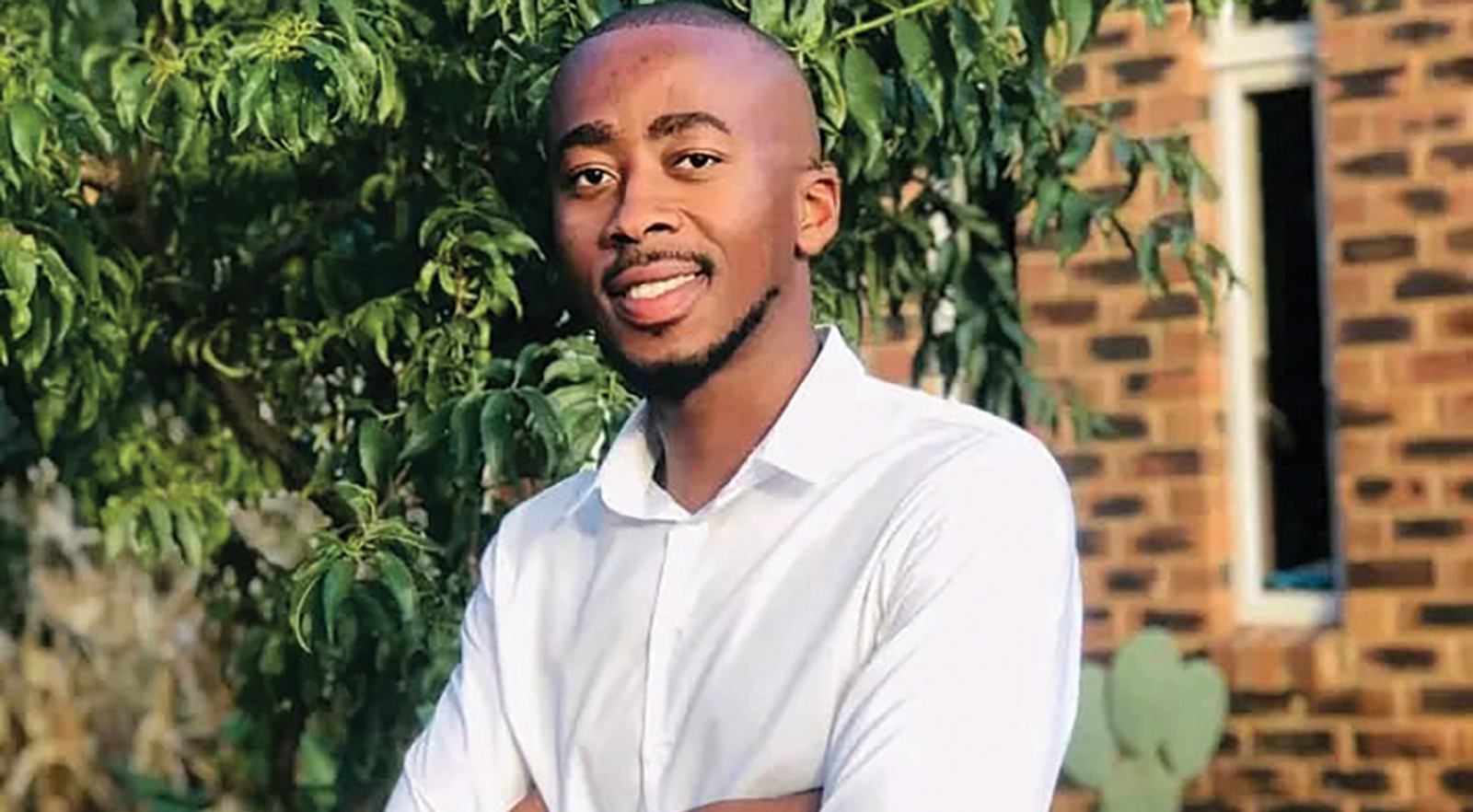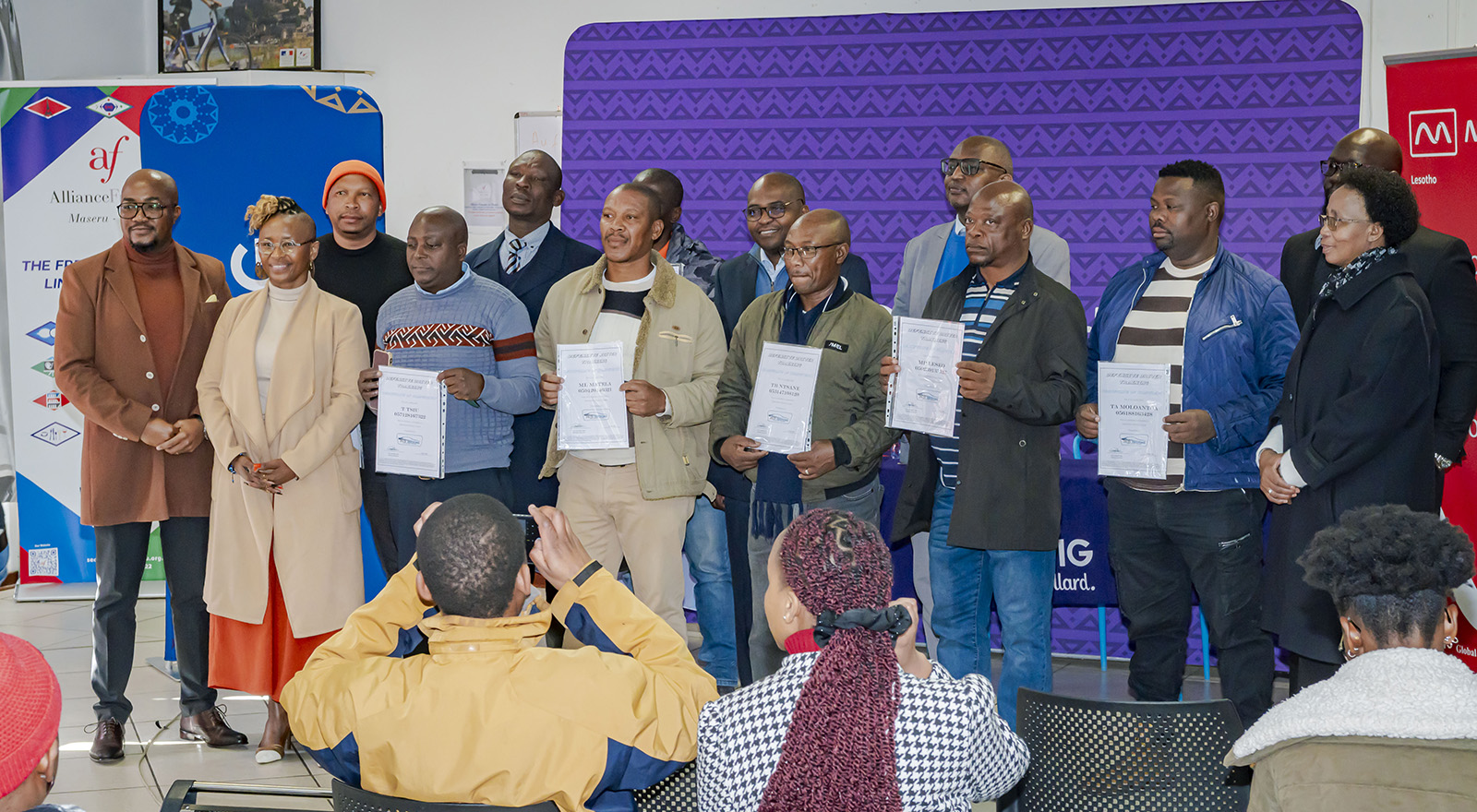Mental health a national priority

SHARE THIS PAGE!
By Seleoe Nonyane
The United Nation’s World Health Organisation (WHO) estimates that close to one billion people have a mental health disorder.
Despite the magnitude of mental ill health, relatively few people around the world have access to quality mental health services.
A mental illness is a health condition involving changes in emotion, thinking or behaviour (or a combination of these). Mental illnesses can be associated with distress and/or problems functioning in social, work or family activities.
A mental illness is characterised by a clinically significant disturbance in an individual’s cognition, emotional regulation, or behaviour. It is usually associated with distress or impairment in important areas of functioning.
Mental health is included in the UN’s Sustainable Development Goals. Goal 3.4 goal sets a target to reduce by one-third premature mortality from non-communicable diseases through prevention, treatment and promotion of mental health and well-being, by 2030.
It is against this backdrop that Lesotho, which is said to have one of the highest suicide rates in the world, commemorated World Mental Health Day on October 20 2023.
The overall objective of World Mental Health Day is to raise awareness of mental health issues around the world and to mobilise efforts in support of mental health.
Stigma and discrimination continue to be a barrier to social inclusion and access to the right care. WHO says society can play its part in increasing awareness about which preventive mental health interventions work and World Mental Health Day is an opportunity to do that collectively.
Providing insight into mental health, a nurse at Lesotho’s psychiatric facility – Mohlomi Mental Hospital – ‘Malereko Molefe said mental health is genetic like most chronic diseases such as diabetes.
Molefe, who is also a member of the Mental Health Association, explained that even though the illness is not curable, it is treatable and manageable.
She underscored the need for a rehabilitation centre to be established at Mohlomi Mental hospital to cater for patients admitted on account of drug addiction.
“After receiving treatment at Mohlomi, they need to be taken to rehab so that they do not relapse and go back to drugs,” she said.
For her part, the director general health services, ‘Nyane Letsie, noted that people living with mental illness tend to hide the disease, and called on their families to seek help as this would help curb the high rate of suicides.
Letsie further noted that parents also have a tendency to not take their children to mental institutions to address issues that the children are faced with.
“Mohlomi Mental Hospital is the right place for their children to get help and treatment. I have observed that there is still stigma against mental health especially with parents. They say they do not want do associate themselves with the illness.
“The staff at Mohlomi are qualified professionals and are experienced in mental health problems, so parents should not worry because the facility is a centre of excellence,” she added.
According to local NGO Help Lesotho, the country has one of the highest suicide rates per capita (possibly the highest) in the world. Data sources vary slightly in the global rankings, but Lesotho is undoubtedly the highest ranked country in Africa.
Help Lesotho delivers life skills training and mental health support in rural Lesotho.
It says the rate of suicide in Lesotho is the clearest indication of a mental health crisis, yet the country continues without a national mental health response strategy.
“Overall, mental health is barely acknowledged and the social stigma of getting help is so severe that people feel better off suffering alone or making the devastating decision to take their own lives. Decades of poverty, grief and loss brought about by the AIDS pandemic, few employment opportunities and overall feelings of hopelessness for the future are major contributors to the crisis.
“Lesotho differs from many other countries in the gender breakdown of suicide rates. While nearly all countries report higher male suicide rates, Lesotho has a significantly higher female suicide rate. Once the context of Lesotho’s excruciatingly high rate of gender-based violence is considered (at least 86% of women have experienced violence in their lives), there is a clear window on the overwhelming pain, stress, shame, and burden carried by Basotho women.
“These women are disproportionately burdened by unemployment, household responsibilities and caring for family members, contributing to steep financial disparities. HIV prevalence is roughly four times higher among young females (ages 20-24),” Help Lesotho says on its website.
The organisation adds that, universally, it is estimated that for every person who dies by suicide, another 20 people made attempts.
It reveals that every single one of its beneficiaries has had a personal experience with suicide, often within their family or close friend group.
“Despite suicide permeating so many aspects of Basotho society, almost no one talks about it. Help Lesotho is making strides to break this taboo by opening the door to conversations about trauma, grief, abuse, isolation, discrimination and depression.
“The ultimate goal of Help Lesotho’s programmes is to help participants build their resilience which is a cornerstone of mental health. Having resilience makes people less likely to see suicide as the only answer to their problems,” Help Lesotho points out.
For his part, WHO representative Dr Richard Banda said mental health is often referred to as a silent epidemic.
He said it is an issue that touches every corner of the globe regardless of nationality gender and social standards.
Banda emphasised that mental health is not a luxury, but a fundamental human right and recognising this fact is promoting the well-being of all people.
He stated that, like many countries, Lesotho has not been immune to this global mental health crisis.
Struggles of mental health are particularly acute due to the burden of mental illnesses being heavy suicide rates have been unacceptably high.
“Lesotho has the highest suicide rate in the world at 72 deaths per 100 000 of the country’s population. This high rate is a symptom and signal of a bigger problem that calls for collective action and the dismantling of stigma.
“It is important for everyone to understand that mental health is not a matter of personal weakness. Mental illness is a legitimate health issue that affects everyone directly or indirectly.
“Often stigma and discrimination stop people from seeking the services that they need and stigma stops people from being able to talk about their experiences of mental health with their families, friends and colleagues,” Banda indicated.
He said the country has taken some steps toward addressing mental health challenges although there is still a lot more that can be done.
Banda called on all stakeholders including the government to come together and make a difference to ensure that mental health care is integrated into broader health systems.
“Priority must be given to training and providing support for mental health professionals and reaching out to those who may be suffering in silence to break the silence and offer them a helping hand,” he added.
Meanwhile, health minister Selibe Mochoboroane pointed out that mental health is a universal human right.
Mochoboroane said the ministry of health’s mandate is to ensure that everyone in the country is healthy, physically and mentally.
He also noted that many citizens do not visit health facilities to get help.
“WHO estimates that 90 percent of the world’s population deals with mental health problems and among them 49 percent are elderly people while 13 percent are children. In Lesotho mental illness affects 20.8 percent of its population.
“Lesotho lacks resources for mental health issues and those that are available are not being utilised correctly since many people visit these facilities at an advanced stage of their illness. In an effort to strengthen such services, a mental health policy meant to address mental health challenges has been completed and will be presented to parliament soon.
“Apart from the policy, the ministry has established a task team assigned to specifically address mental issues among boys and girls. The ministry has also ensured that mental illness is part of the integrated and comprehensive primary health care services,” Mochoboroane added.
A recovered mental illness patient, Nthati Phakoe indicated that mental health is treatable as long as patients follow the doctor’s instructions and take their medication accordingly.
Phakoe said she lost her mind three times and received treatment at Mohlomi Hospital.
“Losing one’s mind is not a nice feeling at all; it is filled with darkness and confusion. Mental illness stems from a lot of issues such as life’s problems, genetic issues and drug addiction,” she noted.


Breaking the silence on disability and GBV
11 days ago
Cultivating mushrooms using agricultural waste
12 days ago
RSL launches mobile offices
13 days ago
Second TBM arrives in Lesotho
13 days ago
Man fined M2000 over ‘Hennessy’ rage
13 days ago
Youth accuse police of sabotaging protest
13 days ago
LCS officers demand standard salaries
13 days ago
Govt ordered to suspend vendors’ eviction
16 days ago